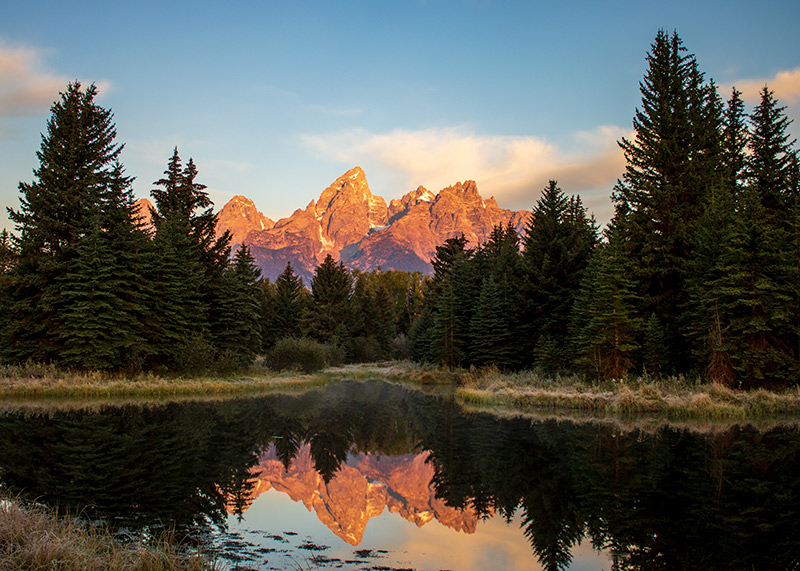
Traveling by vehicle is a fantastic way to explore the world and discover new places. There’s nothing better than open roads and the freedom to travel at your own pace. Whether you are going on a weekend getaway or a cross-country road trip, memories on the road can last for a lifetime.
Now that you’ve decided to experience the joys of traveling by vehicle, one of the major decisions you’ll need to make is whether you want to purchase a campervan or an RV for your trip.
From amenities and space to fuel mileage, there are many factors to consider when choosing which vehicle is right for you and your travels.
What Is The Difference Between A Campervan And An RV?
RVs (recreational vehicles), including motorhomes, are large, motorized vehicles designed to accommodate while traveling. RVs are categorized into three classes: Class A (large motorhome resembling a bus), Class B (campervan), and Class C (medium-sized motorhome; over-cab sleeping area). Generally, an RV includes a kitchen (stove, fridge, oven, sink), a bathroom, a lounging area, and one or more sleeping quarters. Depending on your style and budget, RVs range in luxury, from containing only one sleeping quarter and basic facilities to including deluxe features, such as air conditioning, a water heater, television, etc.
Campervans are smaller motorized vehicles that are outfitted for road trips either by the occupant or by a third party. Campervans range in size, shape and style, from classic recreational vans (VW Vanagon, VW T1, etc.) to domestic cargo vans (Dodge Ram Van, GMC Savanna, etc.) and Euro cargo vans (Mercedes Sprinter, VW Transporter, etc.). Many people will strip everything out of these vans and customize it themselves by constructing their own cabinets, walls, ceiling, and bed frame, and wiring their own electricity.
Things to consider when buying an Campervan or RV
What is your budget?
RVs and campervans may be similar in many ways, but they differ significantly in price.
While you can find a used campervan in good condition for as little as $5000, RVs are typically much more expensive, costing anywhere between $10,000 to $300,000 depending on styles and features. Used cargo vans in good condition can be found for as low as $1000, which is a great option if you’re willing to put time and money into converting it.
On the other hand, although purchasing a cargo van can be inexpensive, the price can become quite costly once you add in the material expenses for the conversion itself. Some conversions can cost $2000 or less, while others can cost more than a $10,000 RV. However, this price is very flexible and can be easily modified based on your budget.
Although you can scale down the cost of a cargo van by budgeting for materials, there is no way to cut down on the cost of purchasing an RV.
So, if you are on a tight budget for your trip, consider buying a campervan and be willing to sacrifice some luxury in order to save money.
Where will you be sleeping?
One of the biggest (and sometimes most stressful) decision while travelling in a campervan or RV is finding a place to sleep each night.
There are many options in the United States for overnight parking, from public lots and rest stops to BLM lands and neighborhood streets.
The disadvantage for RVs, however, is that they are generally restricted to campgrounds due to their substantial size. If you prefer to live in one place for a certain amount of time and do not mind campground fees, an RV is a great option!
On the contrary, if you are planning on travelling from one location to the next with no definite plan, a campervan is the best way to go. Unlike RVs, campervans are much smaller, allowing them to park virtually anywhere overnight for free. Thankfully for van dwellers, there are many free options for overnight parking in the United States, including truck stops, public streets, and the locations mentioned above. Van dwellers even have the option of parking at campgrounds, but most prefer to park overnight for free.
(Related: Is It Legal To Sleep In Your Van?)
How important is fuel mileage to you?
Fuel mileage is one of the most important factors to consider when purchasing your campervan or RV, as you will likely be driving it a lot.
Generally, campervans are far better on fuel than RVs as they are smaller and lighter, making them a great daily driver. RVs, however, consume and burn more fuel due to their large size, making it a more costly purchase in the long run if you wish to travel frequently.
Of course, fuel consumption rates vary based on the size and model of each RV or campervan, so be sure to do your research before making your purchase.
If you are planning to live in an RV park or at a campground for a while and do not plan on traveling far, an RV is a great choice for those who value comfort over gas mileage.
However, if you are going to be driving and travelling far and often, consider purchasing a campervan to save on some money.
Where will you be taking your vehicle?
Are you planning on driving your campervan across the country or are you looking for a simple weekend getaway in the next state over? Whatever your plan, it is important to consider where you will be taking your vehicle before making the big purchase.
In big cities with lots of traffic, it is much more difficult to drive an RV than a campervan. Additionally, RVs do not have the ability to park on public streets or in parking garages, whereas most campervans do. Campervans also have the option of going through drive-thrus and exploring off-road locations, making it the better adventure vehicle.
How much space do you need?
Transitioning from living in a standard house to a motorized vehicle can be quite difficult in terms of space and comfort.
RVs can make this transition much easier, as they provide ample lounging, kitchen, sleeping, and storage room. You are also guaranteed to be able to stand up in an RV, while some campervans may not allow that option.
The amount of space provided in RVs is often far more luxurious than that of campervans. In this way, living in an RV can feel similar to living in a house. However, RVs are almost too comfortable in this sense, making you want to stay inside instead of exploring the outdoors.
In a campervan, since there is usually only enough room to sleep and make dinner, you will be able to enjoy more of the outdoors as the small space essentially forces you outside.
Generally, RVs have rooms that are sectioned off from one another, allowing for privacy if you have multiple people travelling with you. Campervans, however, do not have much privacy as amenities are typically combined into one open space. So, if you value your privacy, an RV may be the best option for you.
How much comfort do you need?
Similar to sacrificing space, you will also have to sacrifice certain amenities if you wish to live in an RV or Campervan.
Many campervans do not include a shower or toilet. Often there is not enough room to include these amenities in a campervan, so most van dwellers instead utilize the city’s free amenities. However, it can be difficult finding a free or low cost shower, and you will not always have access to a bathroom, especially when traveling in the countryside.
If you are unwilling to sacrifice having 24-hour access to a bathroom, shower, or hot water, consider purchasing an RV. The only downside to having a toilet in an RV is having to dump sewage every two to seven days.
(Related: 10 Worst Things About Van Life That No One Tells You About)
Which vehicle is best for me?
In the end, choosing between a campervan and an RV is completely based on your lifestyle, budget, comfortability, and travel plans.
Consider purchasing an RV if you:
• Have two or more people accompanying you
• Are staying in one location for a while
• Want ample space and sufficient amenities
• Are willing to spend a good amount of money on maintenance and fuel
On the other hand, choose a Campervan if you:
• Are traveling by yourself or with one other person
• Are on a budget
• Want to travel in larger cities
• Are okay with sacrificing space and comfort for adventure





Leave a Reply